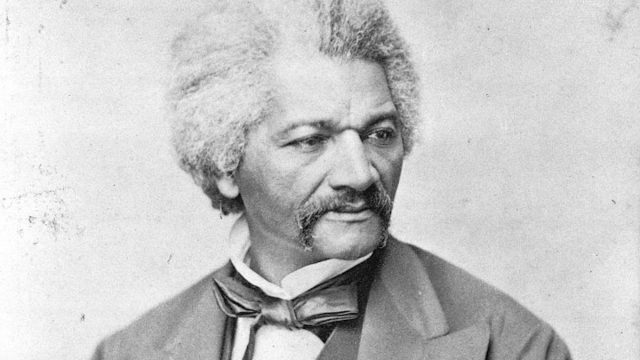Why Is Black History Month in February? Learn the Holiday’s Origins
It’s been nearly 45 years since President Gerald Ford officially declared February the month in which we celebrate the achievements of prominent black figures in American history. But why exactly was February chosen as Black History Month? The answer to that dates back to 1926, when historian Carter G. Woodson campaigned for a holiday in honor of two figures instrumental in the fight to end slavery.
Woodson, a seminal 20th century scholar in African American studies, was inspired to start a formal commemoration of black history after attending a national celebration for the 50th anniversary of the 13th Amendment, according to Encyclopedia Britannica. As a result, he co-founded the Association for the Study of Negro Life and History—now the Association for the Study of African American Life and History (ASALH)—to encourage people to engage with black history, which had long been neglected by academia and in schools. Inspired by the message of the ASALH, in 1924, Woodson’s college fraternity, Omega Psi Phi, introduced Negro History and Literature Week, which led Woodson to launch Negro History Week on Feb. 12, 1926, according to the U.S. Census Bureau.
But why did Woodson choose the second week of February to celebrate black history? Well, it coincides with the birthdays of two figures who were pivotal to abolitionism: Abraham Lincoln’s on Feb. 12 and Frederick Douglass’ on Feb. 14. According to Howard University professor Daryl Michael Scott of the ASALH, “since Lincoln’s assassination in 1865, the black community, along with other Republicans, had been celebrating the fallen president’s birthday. And since the late 1890s, black communities across the country had been celebrating Douglass’.”
February also holds other events of black historical value, too, such as the birth of civil rights leader W.E.B. DuBois (Feb. 23) and the ratification of the 15th Amendment, which gave black people the right to vote on Feb. 3, 1870.
Throughout the early 20th century, as the civil rights movement began to spread in churches and schools in states that had sizable black populations, black people started to organize local celebrations to honor some of these days, hosting performances and lectures, and even establishing history clubs. Soon, mayors in various cities started endorsing Black History Week as an official holiday. And in Syracuse, progressive white people also joined in on the celebrations, according to ASALH.
Then, the height of the civil rights movement in the 1960s helped Black History Week evolve from seven days to an entire month, with Chicago being one of the first cities to celebrate Black History Month in the mid-1960s, thanks to cultural activist Fidepe H. Hammurabi. And in Feb. 1969, the leaders of the Black United Students at Kent State University, Carl Gregory and Dwayne White, also proposed expanding Black History Week into Black History Month, which went into effect the following year.
Six years later, on Feb. 10, 1976, President Ford brought Black History Month nationwide with the following statement:
In the Bicentennial year of our Independence, we can review with admiration the impressive contributions of black Americans to our national life and culture.
One hundred years ago, to help highlight these achievements, Dr. Carter G. Woodson founded the Association for the Study of Afro-American Life and History. We are grateful to him today for his initiative, and we are richer for the work of his organization.
Freedom and the recognition of individual rights are what our Revolution was all about. They were ideals that inspired our fight for Independence: ideals that we have been striving to live up to ever since. Yet it took many years before ideals became a reality for black citizens.
The last quarter-century has finally witnessed significant strides in the full integration of black people into every area of national life. In celebrating Black History Month, we can take satisfaction from this recent progress in the realization of the ideals envisioned by our Founding Fathers. But, even more than this, we can seize the opportunity to honor the too-often neglected accomplishments of black Americans in every area of endeavor throughout our history.
I urge my fellow citizens to join me in tribute to Black History Month and the message of courage and perseverance it brings to all of us.
Since 1976, the ASALH has designated a specific theme to the year’s Black History Month. In 2017, the theme was “The Crisis in Black Education”; in 2018, “African Americans in Times of War”; in 2019, “Black Migrations”; and this year, it’s “African Americans and the Vote,” since 2020 marks the centennial of the 19th Amendment and the culmination of the women’s suffrage movement.
